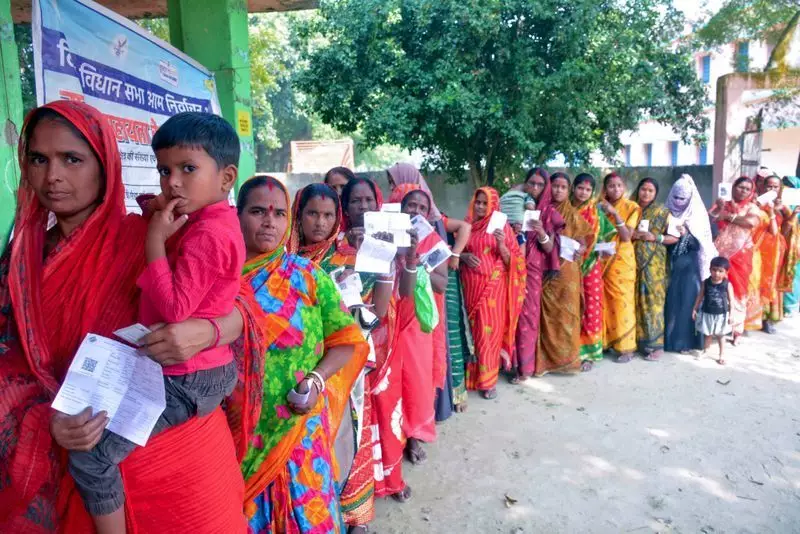
In a striking paradox that defines contemporary Bihar politics, women voters have emerged as decisive forces in election outcomes while simultaneously facing severe underrepresentation in the state's political leadership. Despite turning out in massive numbers and significantly influencing electoral results, women continue to struggle for meaningful political space in a state where their voting power has never been stronger.
The Voting Power Versus Representation Gap
Recent election data reveals a compelling story of female electoral participation in Bihar. Women voters have not only matched but often surpassed male voter turnout in recent assembly and parliamentary elections, marking a significant shift in the state's political dynamics. This increased participation has made women a crucial demographic that political parties can no longer afford to ignore.
Yet this growing influence at the ballot box has not translated into political power. The numbers tell a disappointing story: only 10.5% of Bihar's MLAs are women, a figure that falls below the already low national average of 14.4%. This representation gap becomes even more glaring when considering that women constitute approximately 47% of Bihar's population and have demonstrated their electoral significance repeatedly.
Historical Context and Political Awakening
The transformation of women from passive observers to active political participants didn't happen overnight. Political analysts point to several factors that contributed to this change, including improved literacy rates, greater political awareness, and targeted welfare schemes that made women recognize the direct connection between political decisions and their daily lives.
Several landmark moments accelerated this process. The implementation of 50% reservation for women in local body elections created initial opportunities for political exposure. Additionally, schemes like the bicycle program for schoolgirls and various women-centric initiatives helped build a sense of political agency among female voters across different social and economic backgrounds.
As one political observer noted, "Women in Bihar have moved from being influenced voters to independent decision-makers who carefully evaluate what different political parties offer them and their families." This evolution has made them a sophisticated voting bloc that political parties must actively court with concrete promises and policy proposals.
The Structural Barriers to Political Power
Despite their undeniable influence as voters, multiple barriers prevent women from ascending to positions of real political power in Bihar. Deep-rooted patriarchy, lack of financial resources, and limited access to political networks create formidable obstacles that few women manage to overcome.
The problem extends beyond just getting tickets to contest elections. Women who do enter politics often face additional challenges, including:
- Limited access to party leadership positions that control decision-making
- Scarce financial resources needed to run effective campaigns
- Social expectations and family responsibilities that constrain political ambitions
- Safety concerns and gender-based discrimination within political spaces
These structural issues mean that even when women do secure political positions, they often struggle to exercise real influence or build sustainable political careers. The result is a system where women's participation remains largely confined to voting rather than governing.
The Way Forward for Gender Equality in Bihar Politics
The solution to this representation crisis requires multi-faceted approaches. Most immediately, the long-pending Women's Reservation Bill, which proposes 33% reservation for women in Parliament and state legislatures, could dramatically change the landscape if implemented. However, political will remains the crucial missing ingredient.
Beyond legislative solutions, political parties need to undertake internal reforms to promote gender equality. This includes mentoring programs for women leaders, financial support for female candidates, and ensuring women get winnable seats rather than token nominations. Civil society organizations and media also play crucial roles in holding parties accountable for their gender representation records.
As Bihar continues to evolve politically, the disconnect between women's voting power and political representation represents both a challenge and opportunity. The women of Bihar have proven they can shape electoral outcomes; now the political system must evolve to ensure they can also shape policy and governance. Until that happens, the state's democracy remains incomplete, regardless of how many women exercise their franchise.






